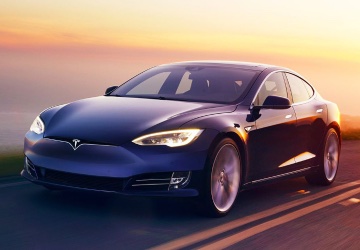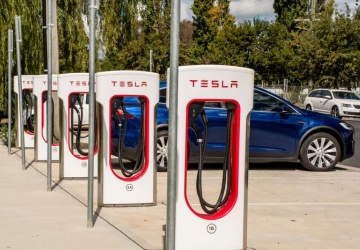Teslas electric vehicles: are they the future?
Tesla continues to dominate the U.S. electric vehicle industry with a 68 percent market share. That percentage is falling as more electric vehicles enter the market. However, the reduction is gradual, and manufacturers are increasing U.S. shipments.
In its home market, Tesla has long dominated the electric car industry. Tesla's market dominance is expected to decline as more electric vehicle options become available and contribute to the expansion of the U.S. EV industry, which is still largely dependent on Tesla's production and supply.

79% of new electric vehicles registered in the U.S. in 2020 were Tesla models.
Electric vehicle deliveries are gradually rising, as are Tesla's costs, which dropped to 69.95% in 2021, but it's still worth noting.
Now that we have numbers for the first half of 2022, it's clear that Tesla continues to lead the U.S. EV industry with a 68% market share. This number is based on Experian registration data.
Considering that Tesla was able to maintain its market lead -- or, more accurately, only lose 1% market share -- while other EV makers saw their U.S. deliveries increase 58% in the first half of the year, it's starting to look like quite splendid.
Tesla has shown its worth in terms of performance. The company's chief executive, Elon Musk, has been claiming that the electric car maker's assembly efforts will give it a competitive edge over rivals, and he seems to be right. Tesla has produced 3 million electric vehicles since its launch in 2008, and that's just the tip of the iceberg.
At Tesla's annual shareholder meeting, Elon Musk said the company just completed production of its 3 millionth vehicle. Musk said Tesla produced fewer than 10,000 cars a decade ago.

When Tesla announced in July that its Fremont, California, plant had produced its 2 millionth vehicle, many Tesla enthusiasts began to realize that the 3 million EV mark was fast approaching.
Since then, Tesla has produced many other vehicles in Fremont and three other factories in China, Germany and Texas.
Tesla reiterated its future production ambitions at its annual shareholder meeting, just in case producing 3 million electric vehicles since 2008 wasn't amazing enough for you. By the end of this year, in 2022, Tesla aims to produce 2 million cars a year.
By comparison: In 2021, Tesla will build nearly 900,000 electric vehicles. The company aims to continue producing 1.5 million electric vehicles by 2022, a 50 percent increase. By the end of 2023, Tesla's annual production capacity of 2 million vehicles will increase throughout the year.
Tesla produced its first 3 million cars between 2008 and 2022, but it appears that it will produce the next 3 million in record time.











